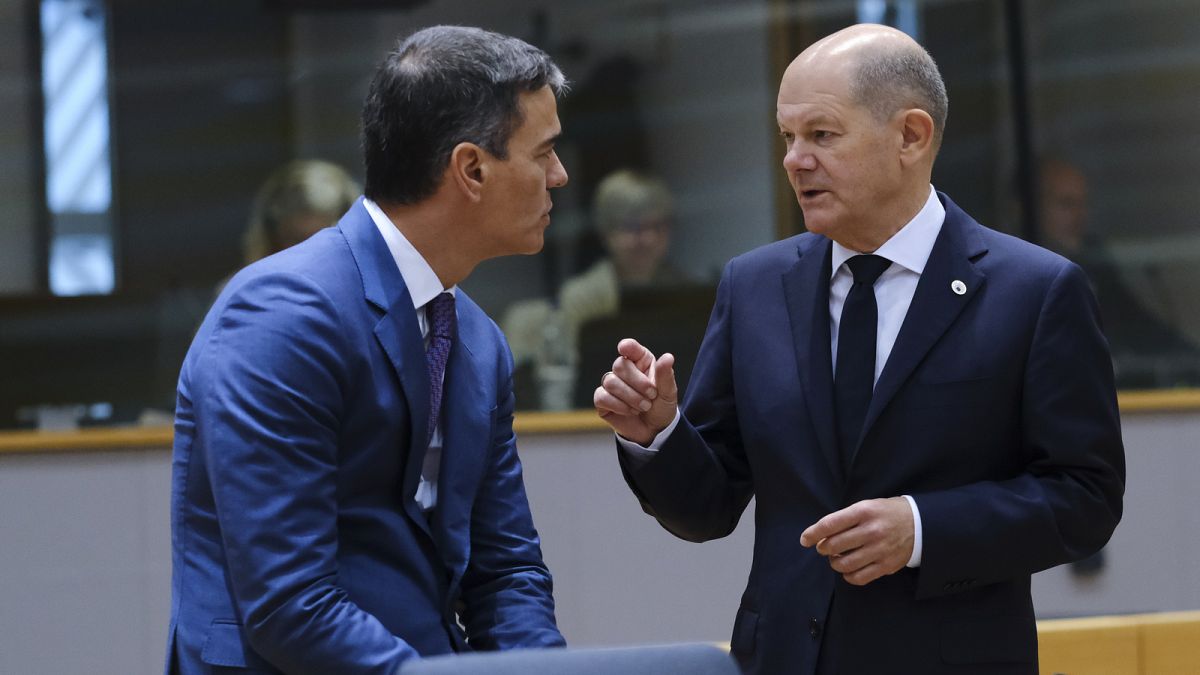In the midst of the latest escalation in Lebanon, diplomatic sources have revealed that the mood among EU leaders has shifted. The recent Israeli offensive into southern Lebanon and attacks on UN peacekeepers have led to a convergence of stances among leaders. The EU is now calling for de-escalation in the Middle East, the release of Israeli hostages in Gaza, and condemning Israel’s actions against UN peacekeepers. The attitude towards Israel’s operations is becoming less acceptable to EU leaders, with positions on the matter narrowing and converging. This shift is largely attributed to reports of Israeli forces targeting UN peacekeeping troops.
Spanish Prime Minister Pedro Sánchez, known for his support for Palestinians, noted a change in positions among leaders. Sánchez and German Chancellor Olaf Scholz, previously at odds over the conflict between Israel and Gaza, came together to draft the 27 leaders’ final statement on the Middle East. This move demonstrates a growing willingness among EU leaders to bridge their differences and find common ground. Israeli Prime Minister Benjamin Netanyahu has accused UNIFIL troops of being used as a “human shield” by the Hezbollah militant group and has called for their removal from southern Lebanon. However, EU leaders have expressed support for the important mission of UNIFIL in southern Lebanon, rejecting Netanyahu’s demands for the peacekeeping forces to leave.
Despite the increased convergence in stances on Israel’s actions, there is still no majority support for using the EU’s economic power as a tool for diplomatic pressure on Israel. Ireland and Spain have urged the European Commission to reopen its trade deal with Israel in an Association Council to discuss their bilateral relationship. The EU’s top diplomat Josep Borrell has called for an assessment of Israel’s compliance with human rights obligations, which are conditional for the trade agreement between the EU and Israel. While Israel has agreed to discuss the Association Agreement, it has stated that the discussions should not involve the situation in Gaza. Irish Taoiseach Simon Harris has indicated that Ireland may consider reviving a 2018 bill that would ban trade with Israeli settlements in the occupied West Bank and East Jerusalem, potentially acting unilaterally if supported by legal advice.
The recent events in Lebanon have highlighted the importance of the UNIFIL peacekeeping mission in maintaining peace and security in the region. Despite Israeli claims that the troops are being used as “human shields” by Hezbollah, EU leaders have expressed their support for UNIFIL’s mission. The EU’s stance on the matter has become more unified in light of Israel’s offensive into southern Lebanon and attacks on peacekeeping troops. This shift in attitudes among EU leaders signals a growing concern over the situation in the Middle East and a desire to find a resolution to the conflict.
The EU’s response to the recent escalations in Lebanon and Israel is marked by a desire for de-escalation, release of hostages, and support for UN peacekeepers. While there is a convergence of stances among EU leaders, there is still caution when it comes to using economic leverage to pressure Israel. The call from Ireland and Spain to reopen the trade deal with Israel indicates a willingness to address human rights concerns but faces challenges in gaining majority support. As the situation in the Middle East continues to unfold, EU leaders are navigating a delicate balancing act between supporting peacekeeping efforts, condemning violence, and finding a path towards a peaceful resolution to the conflict.











